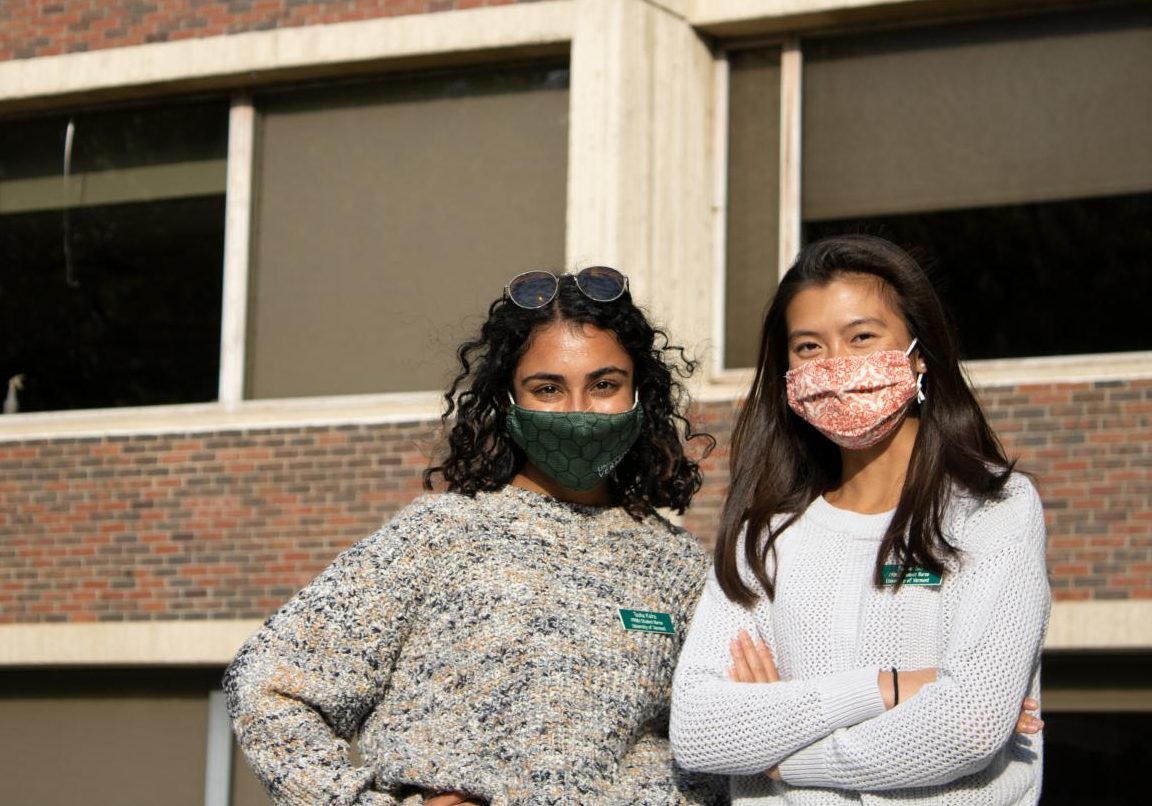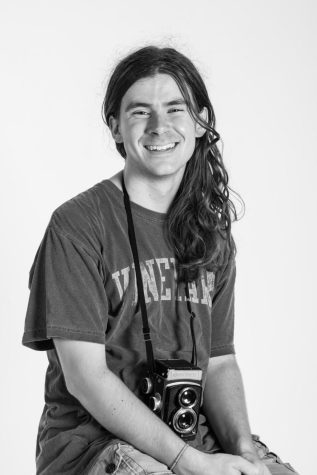Nursing students, senior citizens and Zoom
October 15, 2020
Every week, volunteers aged 65 or older log in to Zoom to be greeted by the smiles of nursing students from the comfort of their kitchen tables.
Junior nursing students were looking forward to their first experience working in assisted living facilities for their Gerontology course, but the pandemic has changed the course of their learning.
Professor Jason Garbarino has been the Clinical Associate Professor of Gerontology since 2013.
Garbarino developed the “Aging Is Very Personal” program in 2018, which allowed students to visit assisted living facilities in order to build a one-on-one relationship with an older adult.
“Older adults like working with students of a younger generation,” Garbarino said. “They find a sense of purpose in being able to instill knowledge and expertise.”

Last spring, he said he knew he had to transition from an in-person model to a remote one. He recruited volunteers from the community via word of mouth and an online forum called Front Porch.
“I looked for volunteers who could be teachers and give a sense of value,” Garbarino said. “Students learn life lessons and what’s important as you age whether you’re working at an in-patient or out-patient facility.”
Garbarino said that nursing students can excel at procedures yet struggle with communication, and interaction with the community can help to benefit their skillset.
“Being such a rural state, we have the ability using Zoom technology to expand the people we serve,” Garbarino said. “Once you get out of Chittenden county, there aren’t many opportunities for older adults to find people to interact with.”
Senior nursing student Kylie Beausoleil assisted Garbarino in extending the course to a remote program.
The program consists of a series of 75-minute Zoom conversations centering around healthcare, the aging process and advice older adults would give to younger generations or their younger selves.
Students are either partnered up or work individually to talk to an older adult over the course of a few weeks.
Beausoleil received a research grant from the Simon Family Foundation to study older adults’ experience with the pandemic, technology and isolation, and is using survey feedback from older adults to collect data.
Beausoleil said that amidst the pandemic, older adults can feel isolated and are eager for an opportunity to interact with others.
She said that connecting with someone from a different generation is empowering.
“I fell in love with the care of geriatrics,” Beausoleil said. “In nursing school, some people want to do pediatrics or labor and delivery, not many talk about geriatrics.”
Junior Tasha Kalra did the Zoom meetings individually.
“Older adults are the most vulnerable population but when I think of nursing my mind doesn’t automatically go to older adults,” Kalra said.
Junior Sophie Tom said that service learning helps individualize a person to realize that every patient has their own story.
“This project wasn’t a one way street,” Tom said. “My partner and I were both able to reflect on our perspectives and compare and contrast. I would do it all again if I could.”
Marion Cushner of Williston was one of the volunteer participants and worked with two nursing students.
“I learned from their questions the kind of things they were learning about,” Cushner said. “They had great probing questions about healthcare, my medical providers and the quality of care.”
Cushner said that, as a former teacher, she participated as a volunteer in the program to learn about what nursing students study and to connect with younger people.
“Medical providers need to listen to what seniors are saying,” Cushner said. “Sometimes they dismiss our problems or worries but I think nurses by virtue are a more caring profession.”
Cushner said that the students asked questions like: Do I think about the end of life? What are my worries as I get older? Will I have enough money to last into my 90s?
“We all opened up to each other in this process,” Tom said. “You told them so much.”
Garbarino said that Zoom could continue to be a part of nursing education, and this semester is an introduction to this approach to learning.







